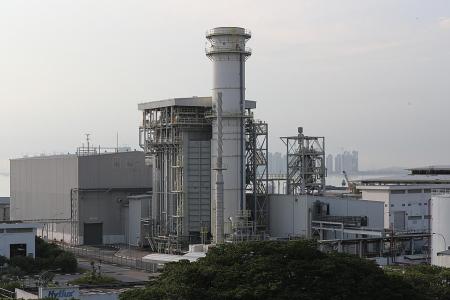PUB to take over Tuaspring to safeguard water security
National water agency PUB is taking over Hyflux's debt-ridden Tuaspring desalination plant to safeguard Singapore's water security.
It issued a notice to the troubled water treatment company yesterday to terminate their water purchase agreement, PUB said in a statement yesterday.
After a 30-day notice period, PUB will take over the desalination plant next month.
The notice is the latest development in the ongoing saga surrounding Hyflux as the company struggles to restructure its debts.
Its liabilities stood at $2.95 billion as of March 31 last year, and its 34,000 retail investors stand to lose all of the $900 million they have invested if the firm is liquidated.
PUB had said earlier that it would take over the Tuaspring plant for zero dollars, waiving any compensations payable by the company, as it strove to ensure that Singapore's water security was not compromised.
It had noted a current valuation showed that the desalination plant's price is negative. The final price, however, will be determined later by an independent valuer, according to the agreement's terms.
A PUB spokesman said in response to media queries that the agency's focus is to put in place the necessary measures and upgrading works to ensure that the desalination plant is able to produce desalinated water reliably.
"The extent of the measures and upgrading works will be determined after PUB conducts a more in-depth engineering assessment," the spokesman added.
PUB will keep employees with the relevant operational capabilities to run the desalination plant.
PUB had previously extended its deadline for Tuaspring to fix its defaults to April 30, subject to conditions.
But Hyflux decided earlier this month to walk away from a $530 million restructuring deal by SM Investments, an Indonesian consortium formed by Salim Group and Medco Group.
FOR MORE, READ THE STRAITS TIMES TODAY
Get The New Paper on your phone with the free TNP app. Download from the Apple App Store or Google Play Store now



